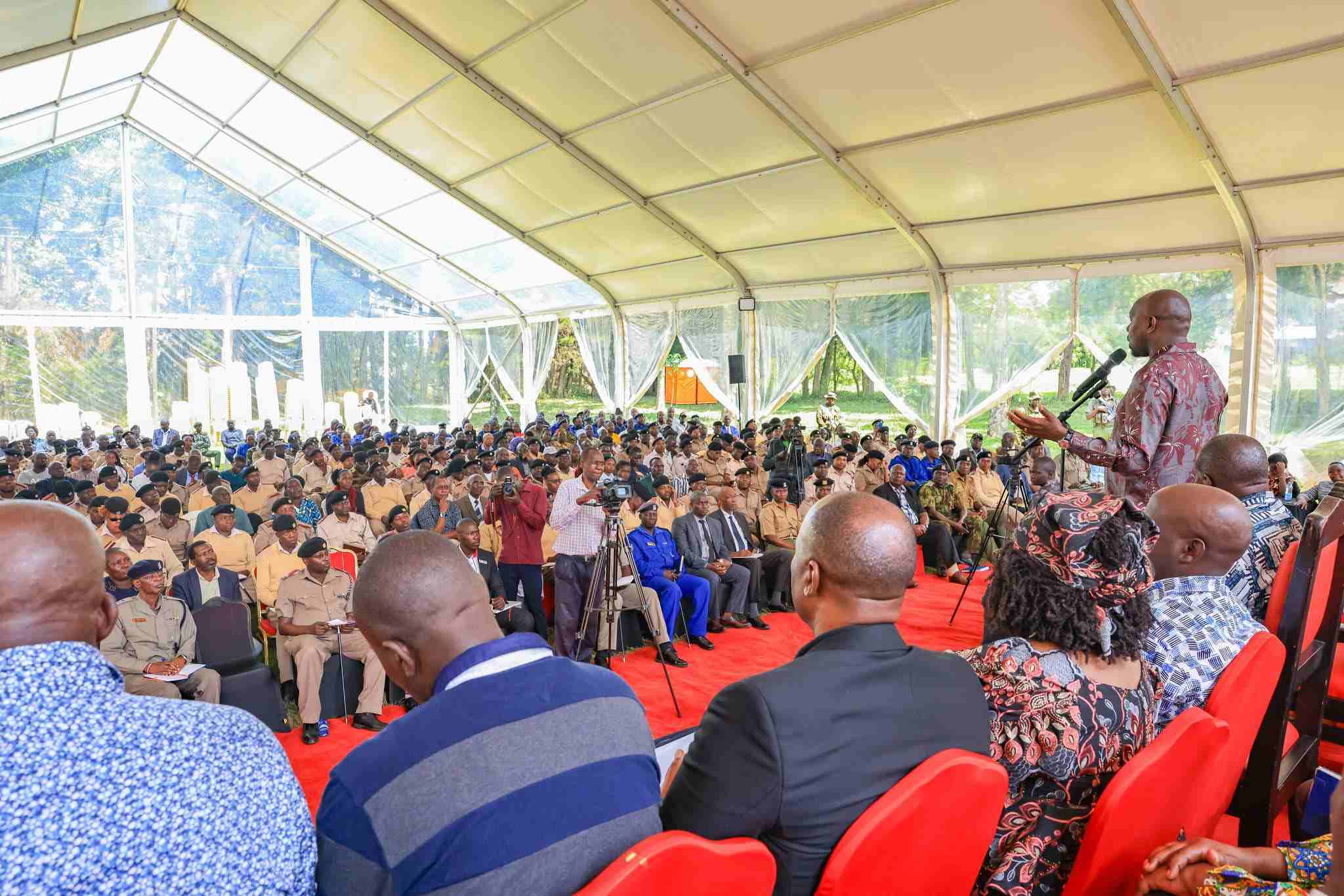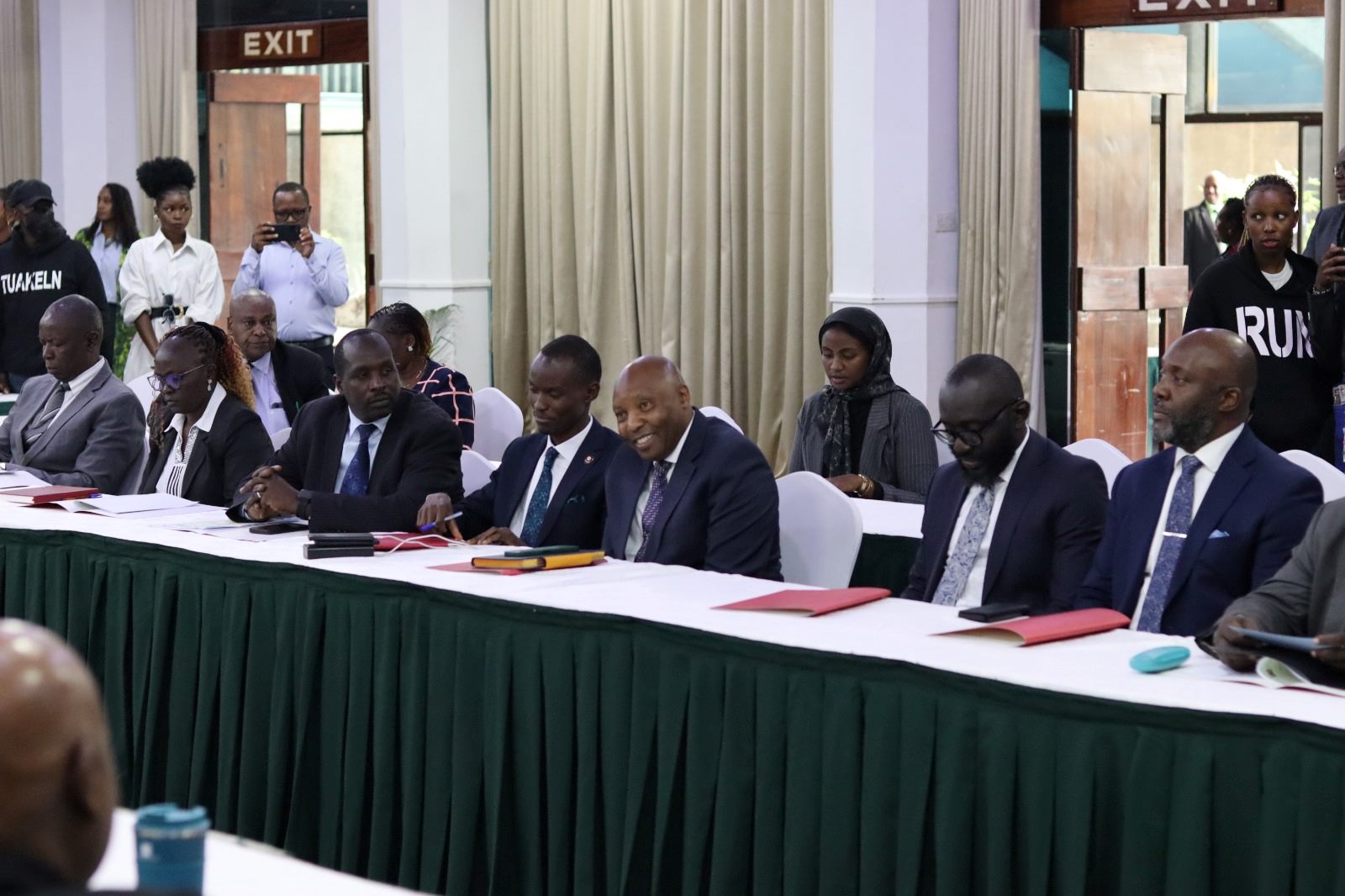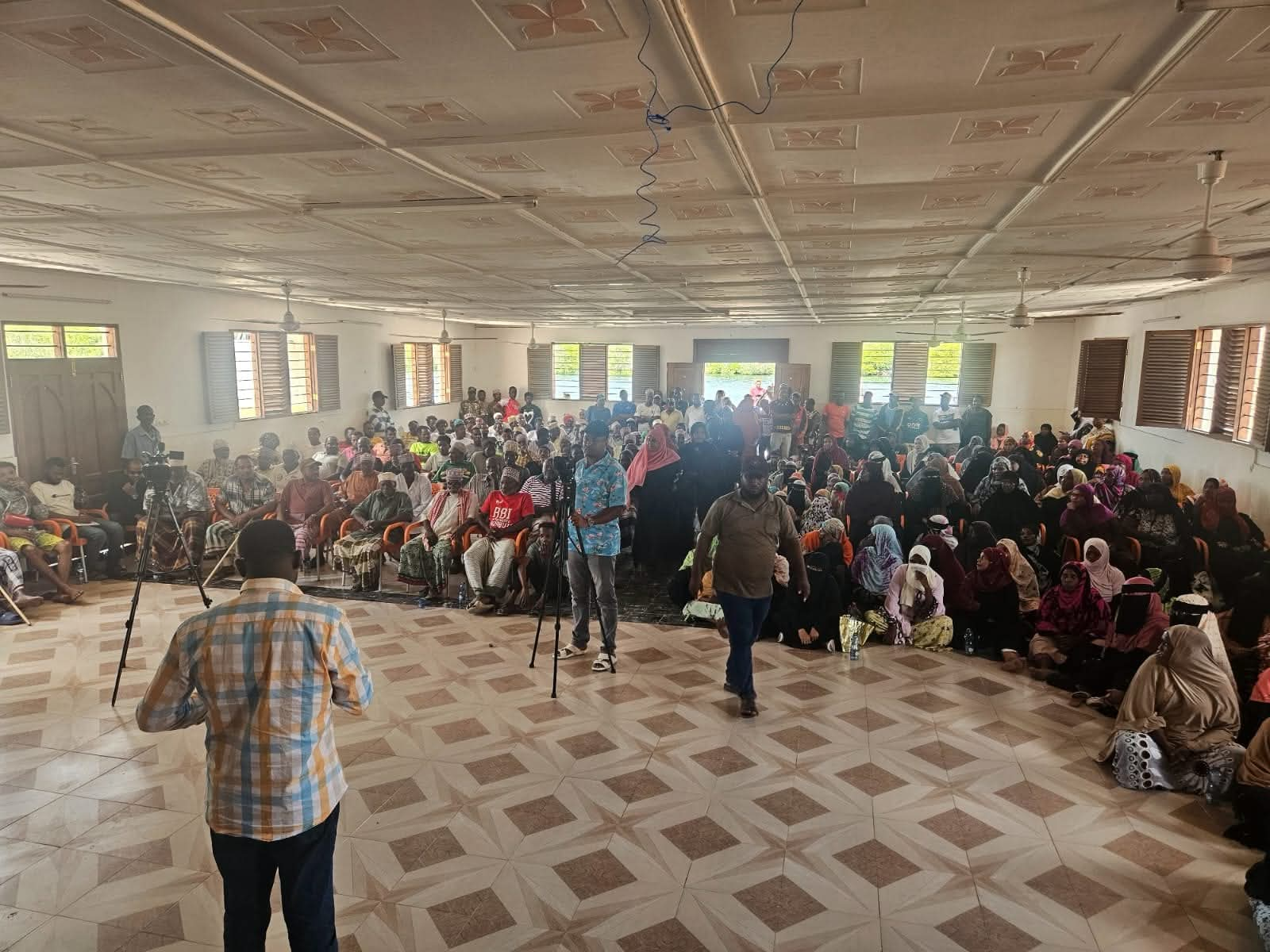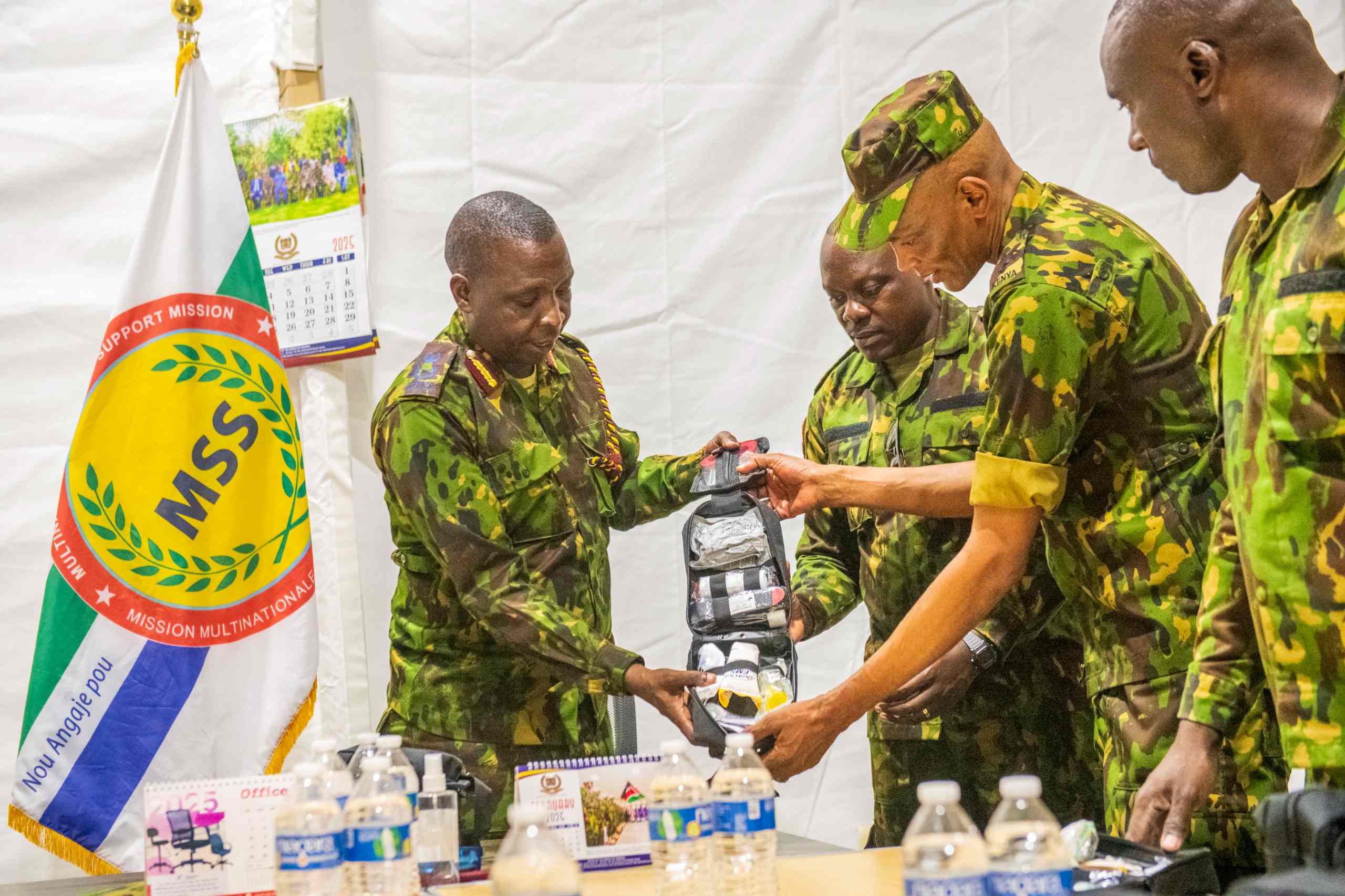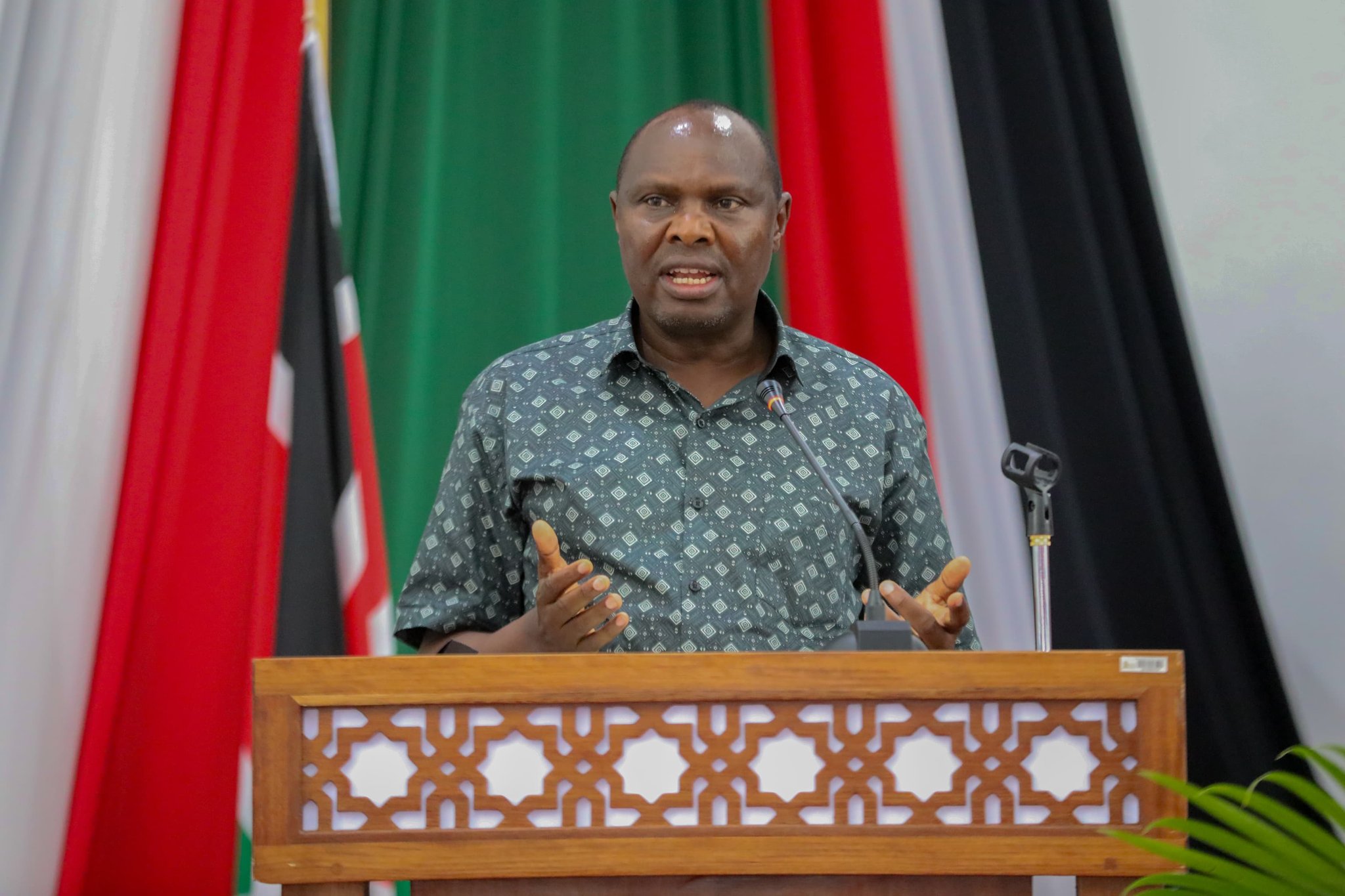How mothers have been defying stigma linked with cleft lip newborns
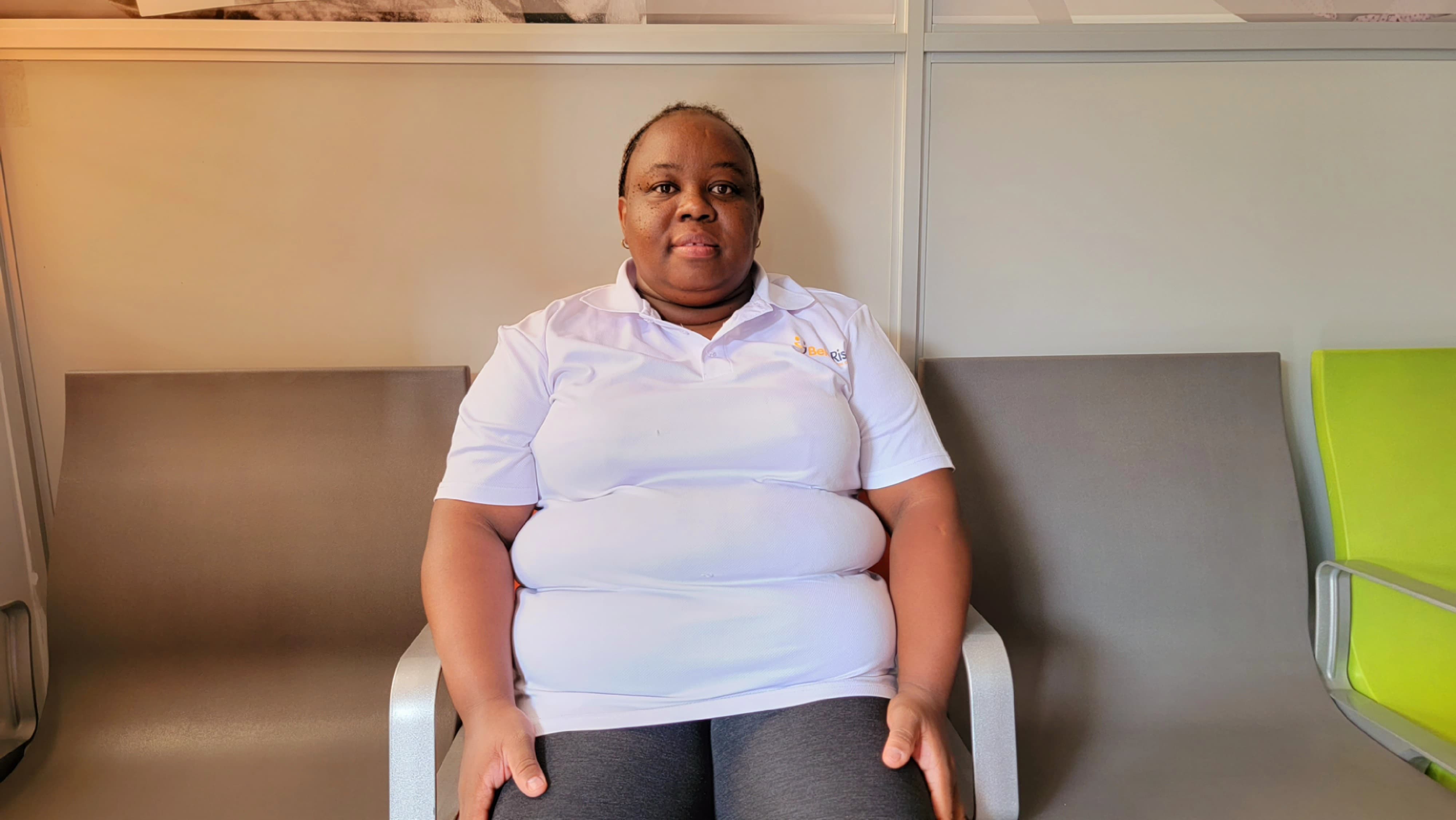
Many parents, when presented with a health problem, suffer a torturous period of denial before achieving acceptance.
Each mother holds dear the moment when they finally hear their newborn's cry after nine months of anticipation. Yet, for some, this joyous occasion is accompanied by unexpected hurdles.
Angella, not her real name, from Kiambu, recalls tears flowing down her cheeks when she first saw her son, born two months ago, not out of excitement, but out of astonishment.
More To Read
- Africa's youth may feel lonelier than you know
- PS Oluga warns stigma denying thousands of PWDs vital health services
- Delivering in fear: The untold impact of disrespect in childbirth
- ‘We were told not to cry’: The untold mental health crisis facing Kenya’s men
- After losing parents to HIV, young man embarks on mission to fight stigma
- Living with Follicular Lymphoma: Evans Machera's resilience through diagnosis and treatment
Her family was inexperienced with cleft lip and palate, and seeing her baby with these problems made her feel overwhelmed.
"I was completely shocked when I first saw my baby. It was my first child, and I had little knowledge about the cleft lips. It took me some time to process before I could gather the courage to visit him in the nursery," the 19-year-old recalls.
Her heart ached with pain and disappointment as she grappled with the reality of her baby's condition.
"After a long, restless nap filled with turmoil, I finally found the strength to confront my fears and uncertainties," she says.
Many parents, when presented with a health problem, suffer a torturous period of denial before achieving acceptance, much like Angella.
"When I finally went to the nursery to see my baby, my heart sank. But then I noticed other children with the same condition. At that moment, a wave of relief washed over me, knowing that I wasn't alone in this journey," she recalls.
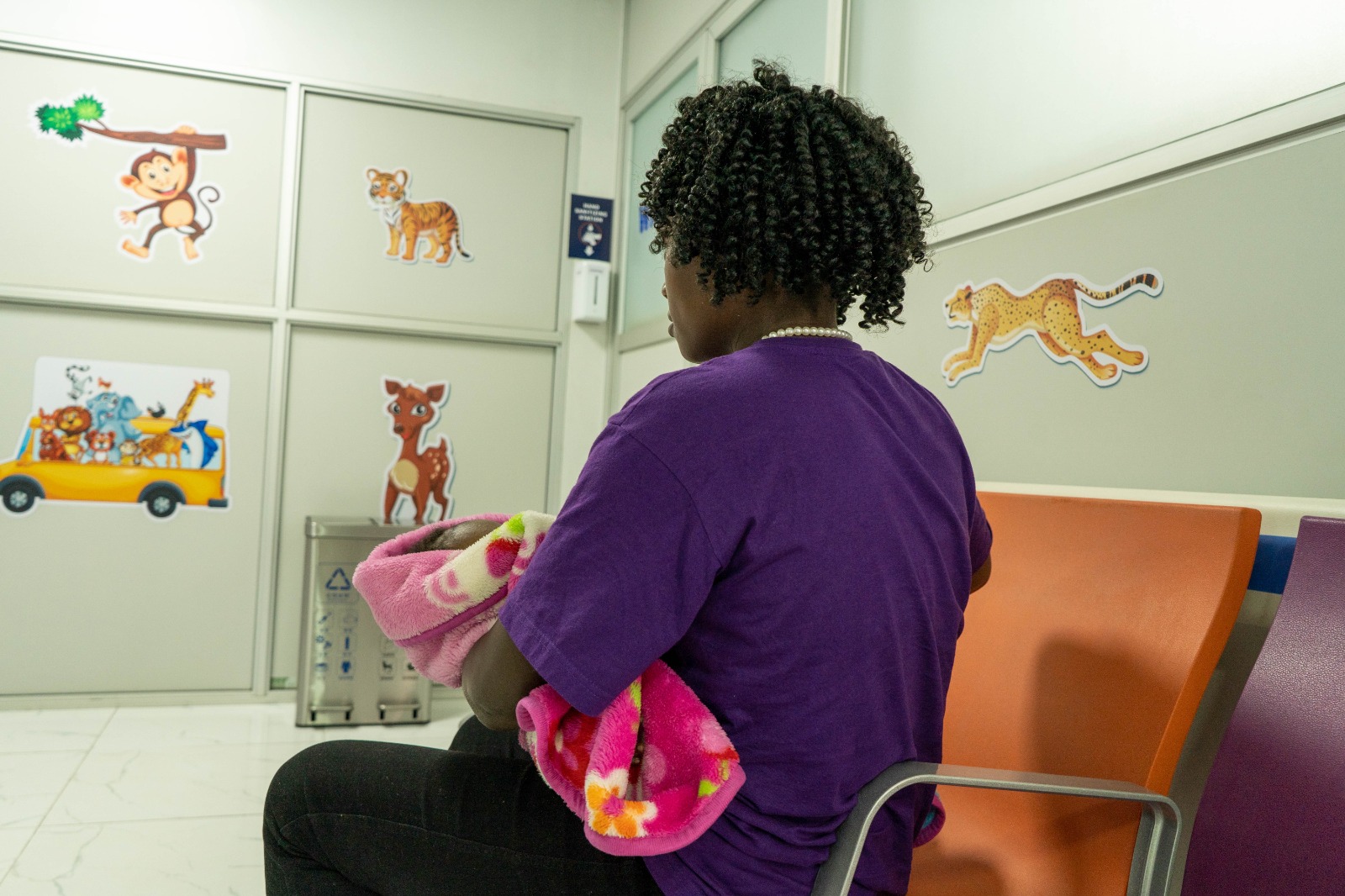 Angella, a mother to a two-month-old baby born with a cleft lip. Photo: Ahmed Shafat
Angella, a mother to a two-month-old baby born with a cleft lip. Photo: Ahmed Shafat
Nonetheless, Angella has had to deal with stigma, forcing her to hide her baby for the last two months.
"The stigma in society has compelled me to keep my child's identity hidden, as many people tend to gossip about such matters. So, for the past two months, only my closest family members have known the identity of my baby," she reveals.
Carol, a mother of a seven-month-old, was deeply shocked upon the birth of her child. "Initially, I was overcome with fear when I saw my baby's cleft lip; it was a traumatic experience for my family and I," she shares.
However, when she went to a different hospital and saw a situation more serious than her daughter's, she felt a sense of relief.
"Seeing that others were facing similar ordeals outside of our family brought a moment of solace," she said.
Carol acknowledges that her family's history with cleft made the situation slightly easier to bear. "Since cleft had been seen before in my family, it was somewhat easier for them to accept," she reveals.
However, she found herself avoiding long walks, fearing the judgment of others who were not accustomed to her child's condition. "I didn't want to become the subject of ridicule," she confides.
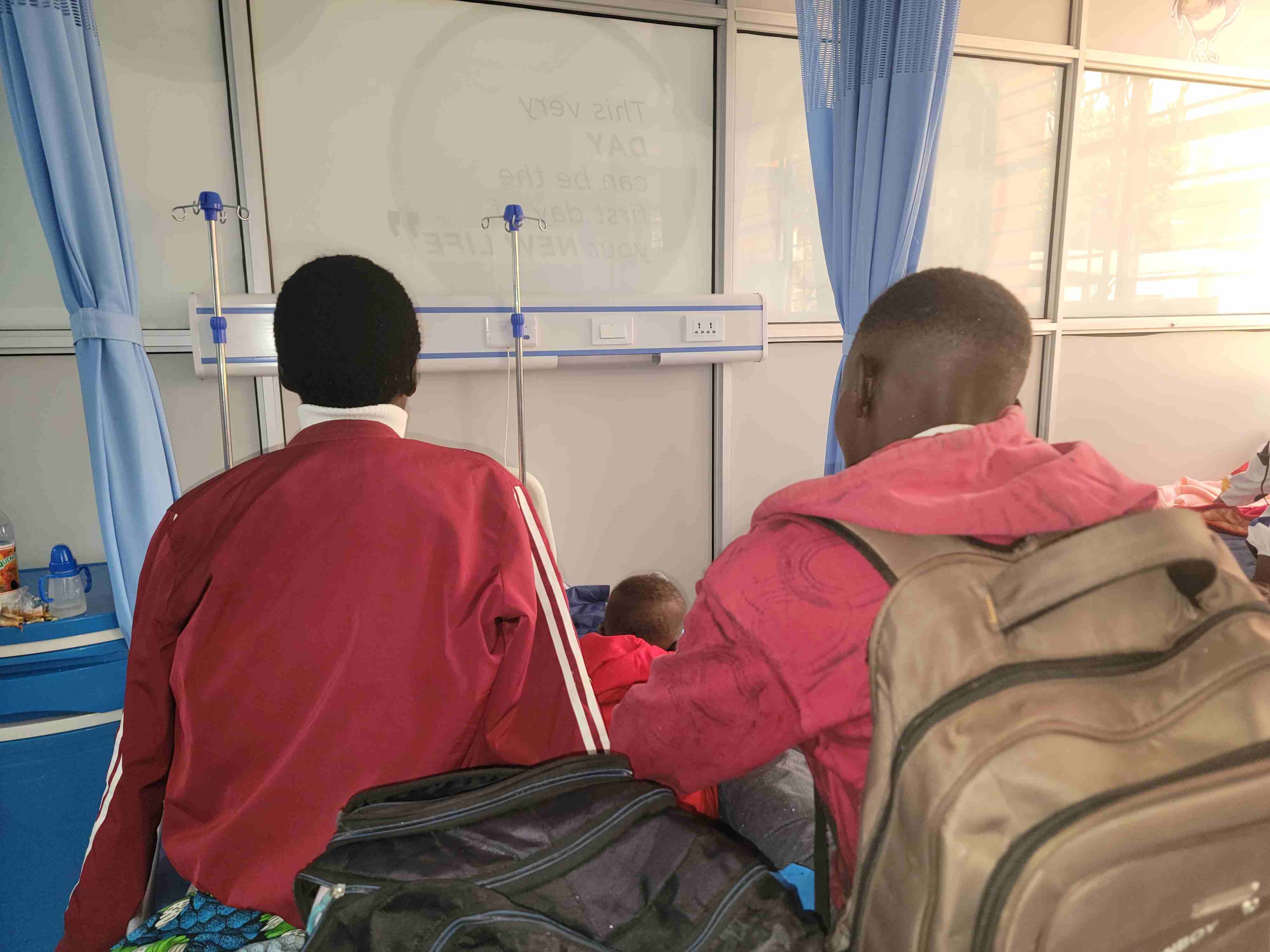 Carol, mother to a seven-month-old baby and her husband. The baby was born with a cleft lip. Photo: Ahmed Shafat
Carol, mother to a seven-month-old baby and her husband. The baby was born with a cleft lip. Photo: Ahmed Shafat
Catherine, not her real name, from Sagana shares a poignant memory from her childbirth experience. "I remember the doctor telling me about my child's clubfoot and cleft lip. I was overcome with shock, barely finding the strength to move," she said.
Despite the initial turmoil, Catherine found solace in the unwavering support of her family and friends.
"Initially, it was incredibly difficult for me to accept, especially considering this is my third child, and my other children are completely normal," Catherine shares with a heavy heart. "I had never encountered such a case within our family or among other families we knew."
Catherine reflects on the reactions of her other children upon meeting their new sibling for the first time. "I have two other children, and I remember vividly how they reacted when they saw their little brother," she shares.
"At first, they were startled, and they all fled. However, with time, they came to accept the situation."
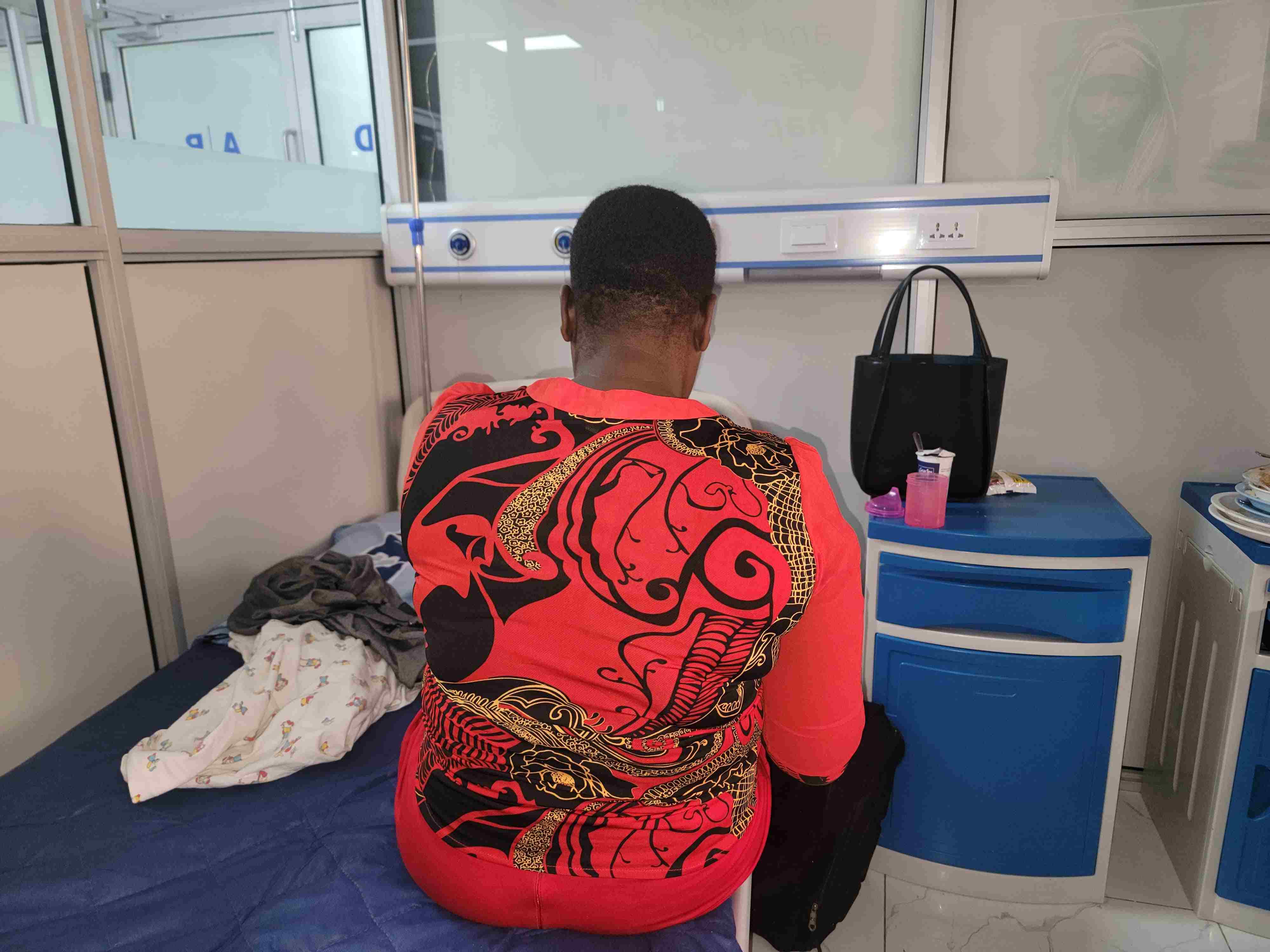 Catherine gave birth to a child with a clubfoot and cleft lip. Photo: Ahmed Shafat
Catherine gave birth to a child with a clubfoot and cleft lip. Photo: Ahmed Shafat
Catherine draws strength from her visits to the nursery and her family, where she encountered many children facing similar challenges.
"Seeing those other children with the same condition gave me courage," she explains. "However, the major challenge I have encountered so far is with feeding."
Sarah Ndegwa, the nurse in charge at Bela Risu Medical Centre, says that cleft lip happens when the tissue that forms the lip fails to fully fuse before birth, leaving a gap in the upper lip.
This aperture can vary from a little slit to a big gap that extends into the nose. It could have a hereditary component.
"Most women don't seek early prenatal care, which is crucial as the facial structure forms within the first 12 weeks. Some come to the hospital late and without proper supplements, which can also contribute to the condition," she notes.
"Many patients experience stigma and hide their babies, but seeing others with the same condition encourages them," she adds.
Bela Risu Medical Centre organises free cleft palate surgeries monthly and provides counselling sessions before the procedures.
Sarah advises moms not to hide their children, underlining that a solution is available. She says tomorrow brings a ray of hope when their children undergo free surgery at Bela Risu Medical Centre.
According to the World Health Organization(WHO) clefts affecting the mouth and face, known as orofacial clefts, are among the most prevalent craniofacial birth anomalies worldwide, occurring at a rate of approximately 1 in 1000–1500 births, although this can vary across studies and populations.
While genetic factors play a significant role, environmental factors such as inadequate maternal nutrition, smoking, alcohol consumption, and obesity during pregnancy also contribute to their occurrence.
In regions with limited resources, there is a heightened risk of mortality among newborns with these conditions. However, with timely surgical intervention to repair lip and palate clefts, complete rehabilitation is achievable.
The Bela Risu Medical Centre is situated on Park Road, Ngara East, Nairobi. For inquiries, appointments, or any medical assistance, you can easily reach out to them by dialling 0722878722.
Top Stories Today
Reader Comments
Trending
